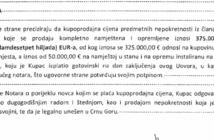The Judiciary – Family Business
Although in their official statements institution representatives deny that there can be any reference to nepotism in Montenegro, the state of fact indicates that if we look at first associate editors, statesmen, directors, we can easily ascertain whether the supervisor originates from the tribe of Kuči, Vasojevići, Piva, Žabljak, Njeguši, etc.
Doing favours, protectionism and pulling strings when hiring relatives or personal friends and party comrades, which is the definition of nepotism and clientelism, is not the exclusive characteristics of Montenegro. But in a country with approximately 650,000 inhabitants, such connections are more manifest and apparent, thus certain professions have become almost family businesses. The judiciary is one of them.
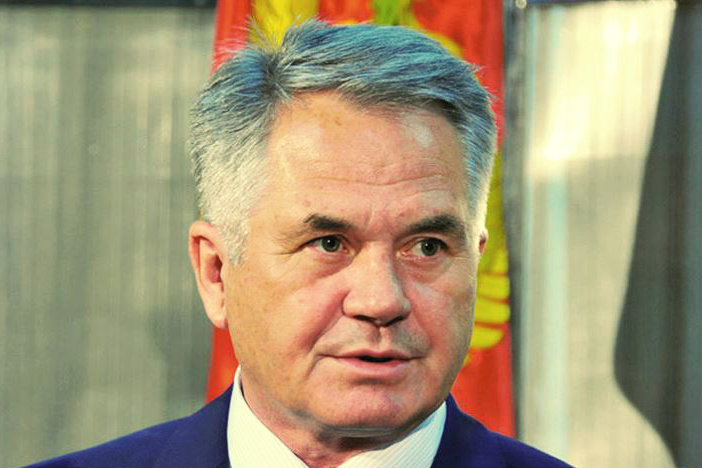 THE FAMILY: When a former judge Milan Radović decided to exchange his judge’s seat with the position of Secretary General of the Montenegrin Parliament, first in Bijelo Polje and then in the Higher Court of Podgorica, his nearest relatives remained loyal to the judiciary. It’s just that, in the meantime, they advanced a few steps ahead in the judicial and prosecutorial hierarchy. Consequently, after his resignation in the Parliament, Milan Radović became one of the rare members of his family without a prominent title.
THE FAMILY: When a former judge Milan Radović decided to exchange his judge’s seat with the position of Secretary General of the Montenegrin Parliament, first in Bijelo Polje and then in the Higher Court of Podgorica, his nearest relatives remained loyal to the judiciary. It’s just that, in the meantime, they advanced a few steps ahead in the judicial and prosecutorial hierarchy. Consequently, after his resignation in the Parliament, Milan Radović became one of the rare members of his family without a prominent title.
His daughter Ana, after three years of training in the prosecutor’s office of Podgorica, was elected Deputy Basic Prosecutor last year. His wife Miljana Radović also holds a deputy position – but to Supreme State Prosecutor.
Radović’s paternal first cousin, Zoran Radović, a longtime judge, who tried his hand at the position of a prosecutor in Bar, was elected President of the Basic Court in Podgorica several months ago. After taking office, he became the supervisor to his younger maternal first cousin, judge Radonja Radonjić, who was once his trainee in the court of Podgorica. The opinions of the Court President, by duty, must also be obeyed by Zoran’s wife Jelena Radović, who is appointed as an expert associate with the Basic Court, where she has worked for several years.
Radović says that he was recommended for all his previous positions, including his current one “by results, and not kindred relations”. In his response to the question proposed by the journalist of the TV programme Under the Magnifying Glass (Pod lupom), he claims to have been “one of the best students of Law School in Novi Sad, and was awarded equally high marks before the Judicial Commission … he completed well all his reports by working previously as an expert associate with the Basic and Higher Court”. “Milan Radović is my paternal first cousin, I was introduced to Miraš Radović as an extraordinary judge of the Higher Court, and I met Stojanka Radović when I became the Basic Prosecutor in Bar. It appears that all those who are skillful should look for a job in some other country”, concludes Radović.
Following his resignation from the Parliament, Milan Radović became one of the rare family members without a prominent title. His daughter Ana, after three years of training in the Prosecutor’s Office of Podgorica, was elected Deputy Basic Prosecutor last year. His wife Miljana Radović also holds a deputy position – but to Supreme State Prosecutor.
And while the President of the Basic Court answers to his tribe compatriot and namesake Miraš Radović (Minister of Justice) regarding his work and communication with his inferiors, he has asked for verification of laws in the Parliament by passing them on to Milan Radović.
The daughter of Deputy Secretary General of the Parliament Slobodan Dragović, who is also daughter-in-law of Mihailo Banjević, former chief of the Pension and Disability Insurance Fund and the Aluminium Plant, and one of the current directors of Atlas Group, Vesna Dragović Banjević, is also appointed as a judge with the Basic Court. Banjević’s son-in-law, an investigating judge Miladin Pejović is employed with the same court.
The same court is the place where justice is delivered by judge Dijana Radulović, daughter-in-law of the professor at the Criminal Department of Law School and member of a group for drafting certain legal regulations Drago Radulović, whose assistant and colleague is his son Darko.
According to the definition from the Vujaklija dictionary, nepotism is a “term that refers to the behavior of individuals, mainly holders of political, economic, military or other types of power and influence who, owing to their privileged position, provide benefits and other advantages to members of their families, relatives or people close to them as opposed to other people”.
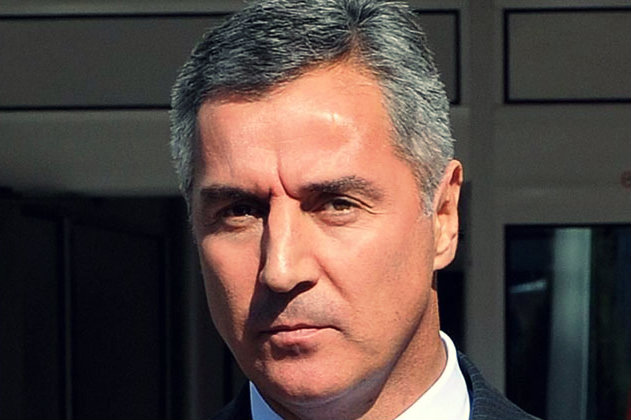 TIES OF BIJELO POLJE: In a recent allocation of positions in the new Government of Prime Minister Milo Djukanović, the ministerial position of Miraš Radović was brought into question, according to unofficial information, because of his kinship relation with the Special Prosecutor for organized crime, corruption and war crimes Stojanka Radovic – who is the Minister’s daughter-in-law. This, however, was not a problem when Miraš Radović was elected Minister in 2006.
TIES OF BIJELO POLJE: In a recent allocation of positions in the new Government of Prime Minister Milo Djukanović, the ministerial position of Miraš Radović was brought into question, according to unofficial information, because of his kinship relation with the Special Prosecutor for organized crime, corruption and war crimes Stojanka Radovic – who is the Minister’s daughter-in-law. This, however, was not a problem when Miraš Radović was elected Minister in 2006.
The spouses of the Special Prosecutor and the Minister of Justice also hold offices in public administration, thus Novo Radović, husband of the Special Prosecutor and brother of Miraš Radović, is appointed as Deputy Director of the Tax Administration, whereas the Minister’s wife and sister-in-law of Stojanka Radović – Mira Radović, is employed with the Ministry of Education.
The next of kin to the Special Prosecutor fights against crime as well, so the rulings of the Basic Court are signed by her brother Dragiša Baletić.
The fact that residents of Bijelo Polje like to acquire riches in the capital of Montenegro is evident in the example of the family of Deputy Special Prosecutor Šućko Baković. When Baković was appointed to a term of office, his son Enis was hired as an expert associate in the Prosecutor’s Office of Podgorica, meanwhile advancing to the position of Deputy Basic Prosecutor. After taking office, the current president of the Court of Appeals Vukoman Golubović “pulled ahead” his colleague and son Nebojša Golubović from the court in Bijelo Polje, who currently works with the Basic Court of Podgorica.
This is where Lidija Mitrović, wife of the Director of the Administration for Prevention of Money Laundering Predrag Mitrović, also delivers justice.
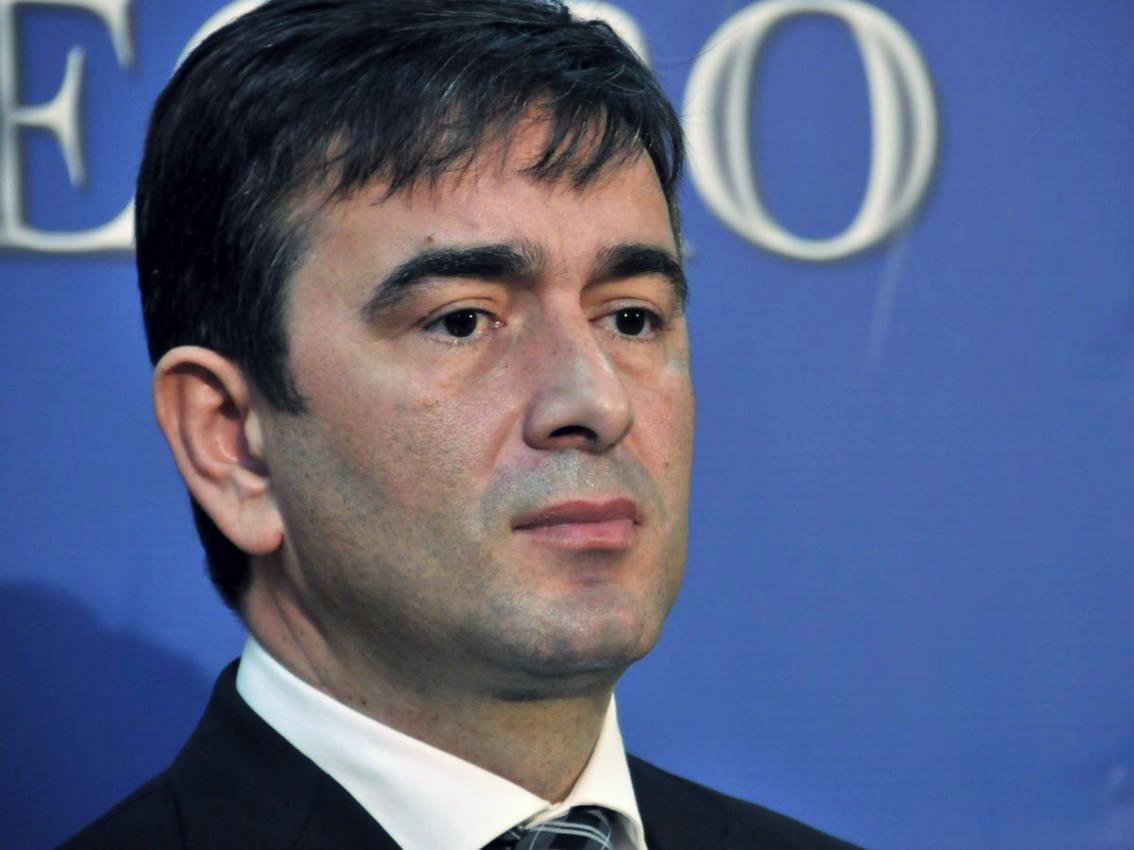 HIGH PLACES: Due to fear of clientelism, PZP (Movement for Changes) Leader Nebojša Medojević has recently requested an exemption of judge Blažo Jovanić, who administers the case of Nikšić Steelworks against Medojević. Namely, the PZP leader has declared that Jovanić’s wife Vesna is employed as a clerk with Prva banka (The First Bank), whereas his brother is a driver to Aco Djukanović, the majority owner of Prva banka. In a dispute against Medojević, the Steelworks is represented by Ana Kolarević, sister of the majority owner of Prva banka Aco and the Prime Minister Milo Djukanović, and a good friend with Vesna Medenica, Chairman of the Supreme Court.
HIGH PLACES: Due to fear of clientelism, PZP (Movement for Changes) Leader Nebojša Medojević has recently requested an exemption of judge Blažo Jovanić, who administers the case of Nikšić Steelworks against Medojević. Namely, the PZP leader has declared that Jovanić’s wife Vesna is employed as a clerk with Prva banka (The First Bank), whereas his brother is a driver to Aco Djukanović, the majority owner of Prva banka. In a dispute against Medojević, the Steelworks is represented by Ana Kolarević, sister of the majority owner of Prva banka Aco and the Prime Minister Milo Djukanović, and a good friend with Vesna Medenica, Chairman of the Supreme Court.
Good family positions in the judiciary are also held by a former lawyer, Minister of Justice and the Police, Prime Minister and incumbent President of the State – Filip Vujanović. His wife Svetlana is a judge with the Court of Appeals, member of the Judicial Council and President of Disciplinary Commission of that body. Her husband, by duty, announces the election of the Council and proposes two of its members (Svetlana was elected in the general session of judges).
President of the Commission for Determining Conflict of Interest Slobodan Leković could not answer whether there was a conflict of interest in the fact that the wife of the President of the State Svetlana Vujanović was elected member of the Judicial Council.
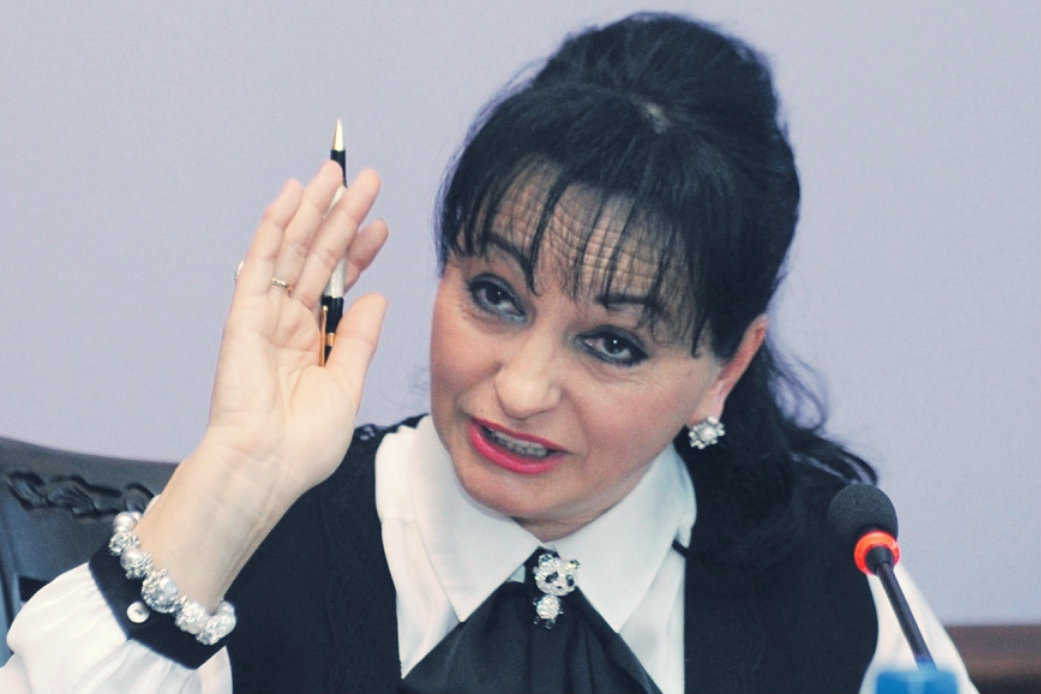 This does not mark the end of family ties in Montenegrin judiciary. President of the Court of Kotor is a longtime judge Branko Vučković, and the judicial position in the same court is exercised by his wife Vesna Vucković. The Court of Bar employs judge Zoran Šupljeglav who is related to the Chairman of the Supreme Court Vesna Medenica, who has also had an impact in promoting the Special Prosecutor Stojanka Radović.
This does not mark the end of family ties in Montenegrin judiciary. President of the Court of Kotor is a longtime judge Branko Vučković, and the judicial position in the same court is exercised by his wife Vesna Vucković. The Court of Bar employs judge Zoran Šupljeglav who is related to the Chairman of the Supreme Court Vesna Medenica, who has also had an impact in promoting the Special Prosecutor Stojanka Radović.
In a TV show Under the Magnifying Glass (Pod lupom), Medenica denied that she was protecting Šupljeglav as her relative acquired by marriage. Referring to Mrs. Radović, she said that her work speaks volumes about whether she helped her advance. “As early as 1982, when I started working as a judge with the Basic Court of Kolasin, Stojanka Radović was Deputy Basic Prosecutor in Podgorica, which had jurisdiction over the Basic Court of Kolašin. Our friendship dates back to those times”, said Medenica. “Stojanka Radović was primarily recommended to be appointed Special Prosecutor by her professional work – almost 30 years’ experience exclusively in the Prosecutor’s Office, and her very committed work. I believe that in acting as a Special Prosecutor, she has convinced the Montenegrin public that she earned her position with her work, and not because she was elected at the time when the Supreme State Prosecutor happened to be her godmother. “
Editor of the Human Rights Action Tea Gorjanc Prelević, however, assessed that, as long as standards for evaluation of roughly prescribed criteria for the election of judges are not specified, “There will be the possibility for significant supremacy of subjective evaluation of members of the election commission, i.e. arbitrariness over objective assessment of candidates.”
“During the election of judges to the Higher Court of Podgorica in October 2008, it remains unclear know why the selected candidates had identical or even lower final scores with respect to other candidates. It is true that in this case no one complained (not suits were filed), but I think this is because there is still no confidence that the appeal will not be taken amiss during any subsequent competition”, says Tea Gorjanc Prelević.
The fact that residents of Bijelo Polje like to acquire riches in the capital of Montenegro is evident in the example of the family of Deputy Special Prosecutor Šućko Baković. When Baković was appointed to a term of office, his son Enis was hired as an expert associate in the Prosecutor’s Office of Podgorica, meanwhile advancing to the position of Deputy Basic Prosecutor. After taking office, the current president of the Court of Appeals Vukoman Golubović “pulled ahead” his colleague and son Nebojša Golubović from the court in Bijelo Polje, who currently works with the Basic Court of Podgorica.
Despite the stated facts, Director of the Anticorruption Administration Vesna Ratković believes that, as regards Montenegrin institutions, there can be no question of abuse. “Given the size of Montenegro, and its population, citizens are often interrelated with various kinship and social relations, and in these circumstances it is difficult to expect the society to be immune to this phenomenon,” Ratković affirms.
“This should also be viewed in terms of social heritage and the process of transition of the Montenegrin society, which after all also applies to surrounding countries, and is often identified as the reason for the occurrence of such phenomena in other countries of the region on a similar level,” she said.
Noting that “there are circumstances that cannot be altered, such as size of the territory and population,” Ratkovic says that this is the reason for “introducing clear rules for employment and career advancement, which are public, transparent and provide legal certainty.”
Vesna Ratković claims that “In recent years, Montenegro has adopted a number of positive legal regulations which contain rules and procedures that are necessary for preventing nepotism and the introduction of objectivity, accountability and transparency. Thus, when hiring and offering promotion in certain areas, such as the profession of prosecutors and judges, rules have been established whereby the occurrence of these phenomena is reduced to the smallest extent. Likewise, when hiring employees to serve in state bodies via the Human Resources Administration, there are also objective criteria to start from and procedures to comply with, by means of which nepotism and clientelism are reduced to the minimum.”
Although in their official statements institution representatives deny that there can be any reference to nepotism in Montenegro, the state of fact indicates that if we look at first associate editors, statesmen, directors, we can easily ascertain whether the supervisor originates from the tribe of Kuči, Vasojevići, Piva, Žabljak, Njeguši, etc.
Most of our interlocutors in informal talks say that if the rules were strictly respected, half of Montenegro would have to change jobs, because everyone is linked with everyone else in one way or another – at least as a friend.



